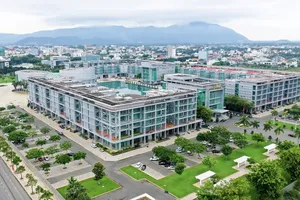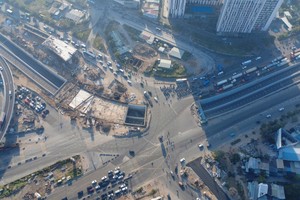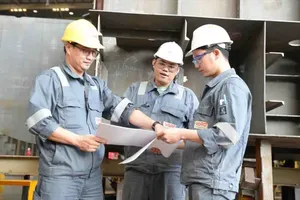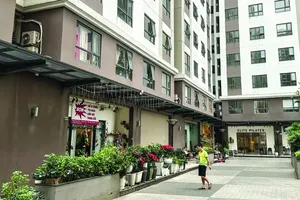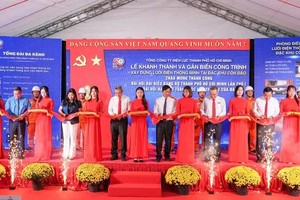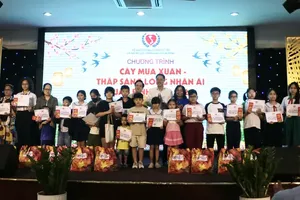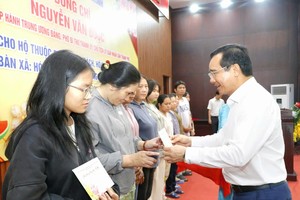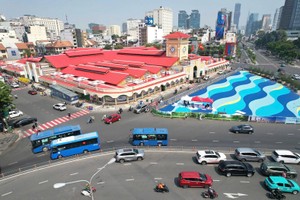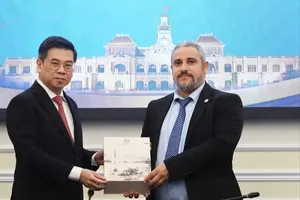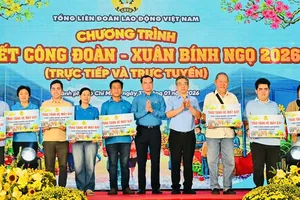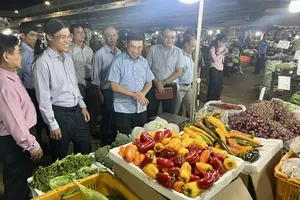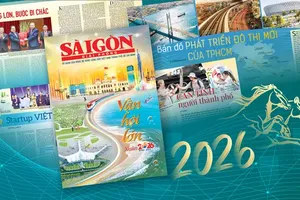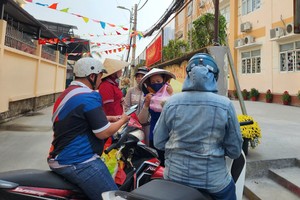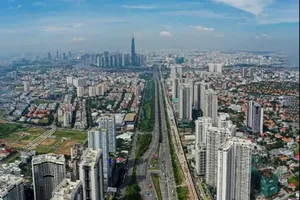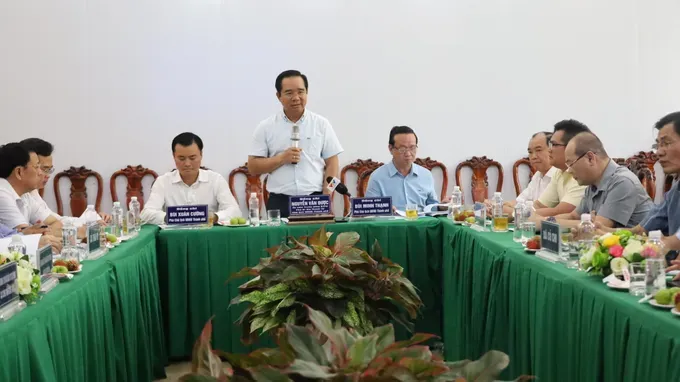
During an inspection tour of major developments including the Ring Road 3 project and the Ho Chi Minh City - Moc Bai Expressway this morning, Chairman Nguyen Van Duoc of the Ho Chi Minh City People's Committee said that site clearance and resettlement issues are the primary major bottleneck hindering the progress of key infrastructure projects across Ho Chi Minh City, directly impacting the overall development speed of the locality.
The delegation visited resettlement land fund projects and held meetings with leaders of the affected communes including Nhuan Duc, Nhon Hoi, Phu Hoa Dong, Cu Chi, and Thai My.
Following the inspection and project progress reports, Chairman Nguyen Van Duoc concluded the meeting by emphasizing that the slow pace of infrastructure development is fundamentally due to site clearance and resettlement complexities. He stressed the urgent need for strong and synchronous direction from all levels of government agencies, coupled with the implementation of flexible and effective solutions, to ensure projects meet their established deadlines.
The HCMC Chairman directed communes to urgently establish several steering committees for site clearance along with propaganda teams to mobilize residents for land handover. He emphasized that this work must be completed within October–November, enabling compensation payments to be made by December.
He underscored the principle of ‘finishing the job, not just the timeline’, stressing that site clearance must be handled thoroughly and in a way that safeguards people’s legitimate rights, preventing future complaints or lawsuits. Policies such as drawing lots for resettlement, granting temporary housing allowances, and allocating land must be carried out in a timely, transparent manner consistent with residents’ wishes.
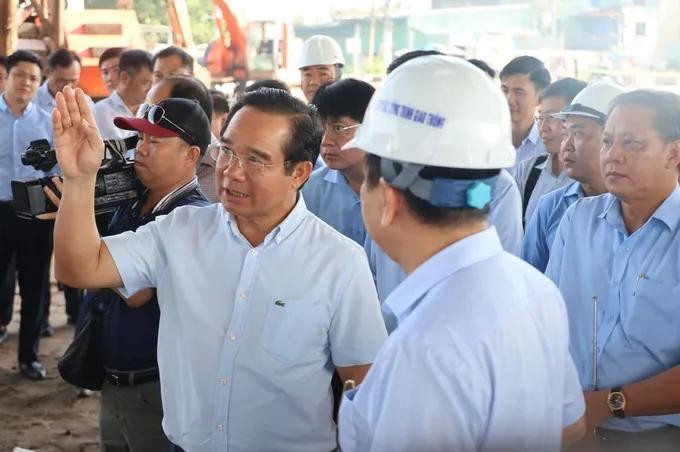
Local authorities were instructed to act with initiative and flexibility, implementing multiple tasks in parallel rather than following rigid steps. Relevant agencies are expected to provide additional professional support, particularly in planning, minerals, and environment, to ensure resettlement arrangements are completed by June 2026—helping families stabilize their lives.
For the Ho Chi Minh City – Moc Bai Expressway, the Chairman required the main construction package to begin in the first quarter of 2026. While the project is currently three months behind schedule, it must commence no later than December. By November, work on the Provincial Road 8 overpass and several other items will also begin.
Regarding the ring road projects, the elevated eastern section of Ring Road 3 will enter service this December, while the western section is slated for technical traffic completion in April 2026. Chairman Nguyen Van Duoc urged careful planning for Ring Road 4 to avoid supply chain delays similar to those seen in Ring Road 3. He called on investors to assign contracts to capable, experienced units instead of fragmenting packages, and directed departments to expedite appraisal and bidding processes without compromising integrity.
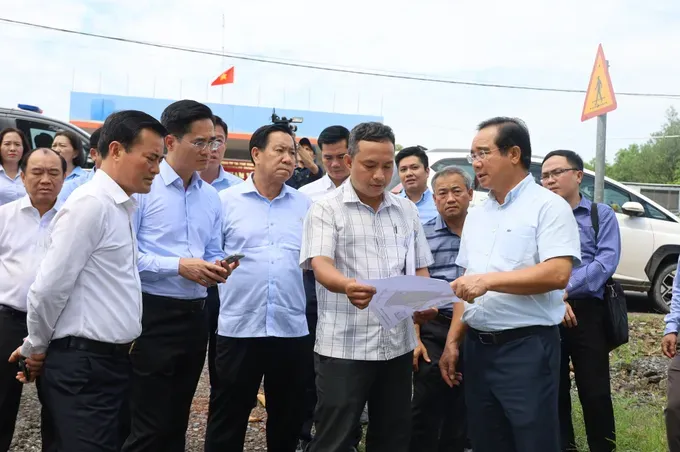
To accelerate resettlement, the Chairman requested the addition of at least five specialized planning officers, as well as early approval of resolutions on resettlement and clearance policies at the commune level. He also tasked the police with strictly controlling complaint intermediaries, which can disrupt social order and slow disbursement.
Chairman Nguyen Van Duoc affirmed that site clearance is a decisive task that must be handled comprehensively to keep infrastructure projects on track. Therefore, he added that strong coordination across all levels of government, coupled with public consensus, will help Ho Chi Minh City advance rapidly toward becoming a super city.

